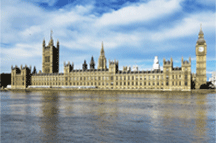The journey of the Lobbying Bill through Parliament is nearing an end. On Wednesday 22 January, the Bill was sent to the House of Commons for consideration of Amendments made by Peers in the Upper House. This week, the Bill revisited the Lords to examine MPs’ “Reasons and Amendments in lieu”.
The consequential amendment put forward by Lord Tyler (Lib Dem) suggested taking Special Advisors (SpAds) into consideration in Part 1 of the Bill. The House of Commons disagreed, but their Amendment in lieu to include a section allowing SpAds to be added to the Bill at a later stage was agreed by Peers.
Lord Wallace of Saltaire (Lib Dem): “While special advisers may provide advice, they are not decision-makers. It is Ministers, not special advisers, who are ultimately responsible for the actions of their departments; and it is Permanent Secretaries who are the officers accountable to Parliament for the performance of those departments.”
Regarding constituency limits for third party campaigning, two Lords Amendments (Amendments 26 and 27), which were “initially put forward […] with a view to making constituency limits more workable by narrowing the activities that they would apply to” were voted down by MPs last week.
According to the Advocate-General for Scotland, Lord Wallace of Tankerness (Lib Dem), “narrowing the range of activities that would apply to the constituency limits in turn limits the very effectiveness of these constituency limits. The reason this Bill widens the range of activities that count towards controlled expenditure is to cover a potential gap in UK election rules.”
However, Lord Harries of Pentregarth (CB) made an attempt at increasing clarity and transparency in the Bill regarding the attribution of expenditure to different parliamentary constituencies. As Lord Cormack (Con) argued, it is very difficult to gauge whether the effects of expenditure are limited to one or several constituencies. For instance, distributing leaflets at public places may influence people from different constituencies rather than simply the one where the leaflets are physically handed out.
Lord Harries’ Amendment was defeated by 18 votes, however.
On 22 January, Lord Harries’ Amendment to exclude background staff costs was defeated in the House of Commons on the ground that it would not lead to increased transparency.
This week, Lord Harries renewed his Amendment, arguing that “introducing a wide range of additional staff costs” to the Bill that “very significantly reduces total spending limits by 60% in England”, will make “the spending limits even tighter”.
Following an equality of votes, the Deputy Speaker Lord Bichard (CB) declared Lord Harries’ Amendment disagreed.
As no changes were reintroduced, the Bill will now become law. A date for Royal Assent has yet to be confirmed.














